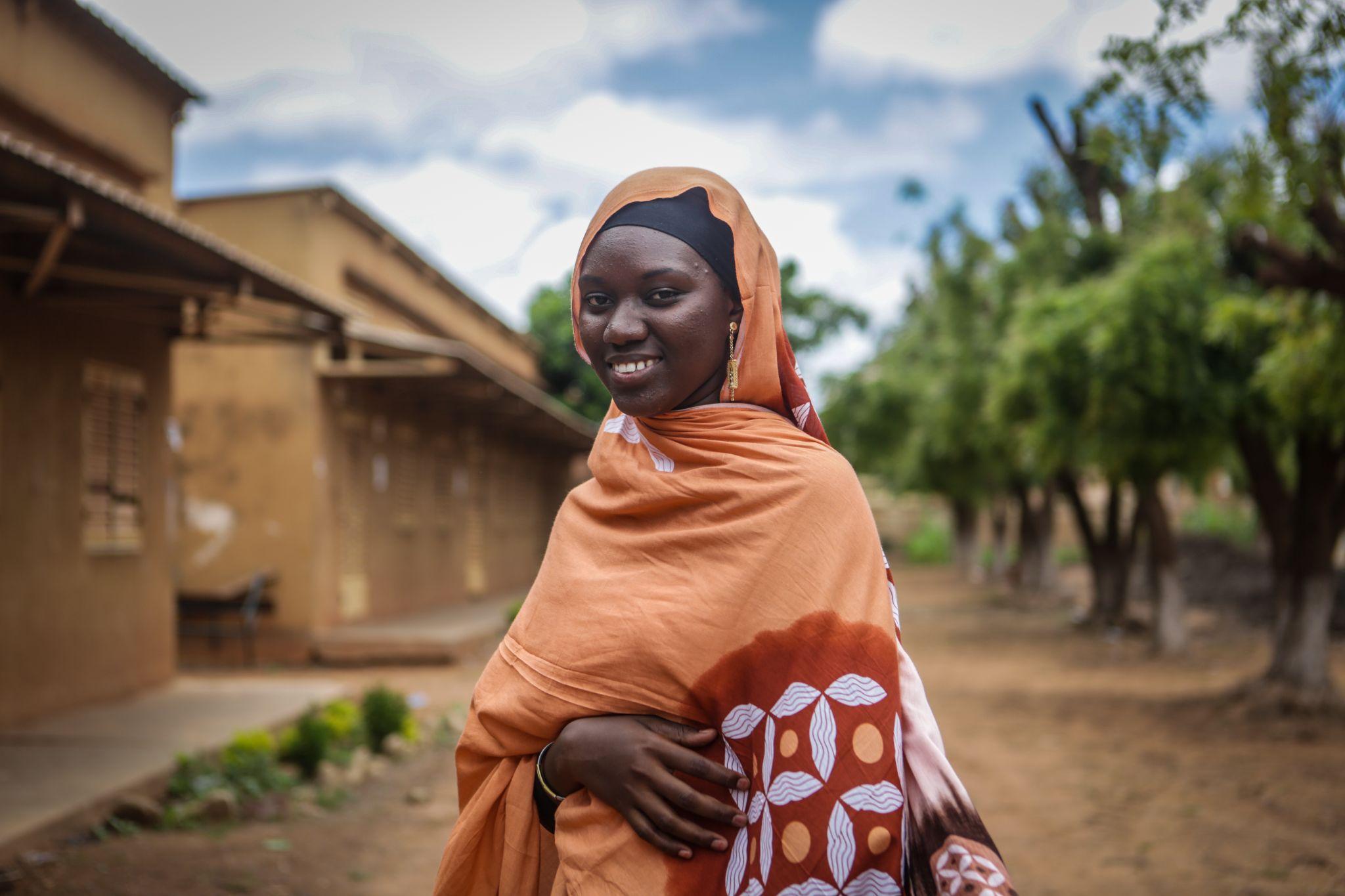
AMINATOU
“Fake news kills. It has the power to destroy a nation.”
"Fake news kills. It has the power to destroy a nation," says Aminatou, a radio editor in Gao, northern Mali. While everyone is still fast asleep, Aminatou gets up to read the news. She cross-checks, verifies, writes, and publishes. Even before the people of Gao wake up, Aminatou has already fought several battles against disinformation.
Indeed, a few months ago, a new passion was born. Aminatou participated in a fact-checking training conducted by Search. While not an entirely unfamiliar field for this trained journalist, "it was the first time I learned how to use verification tools such as apps."
The training was also a wake-up call. Some voices seemed to carry more weight than others on the trust scale. "When we saw a news story published by a well-known journalist or public figure, we didn't question whether it was true or false. But, with this training, we learned that even the news that seems to be the truest is not always true. And it's up to us journalists to make sure it is."
A monitoring job that takes on even more meaning in a conflict-ridden region where false rumors act as sparks in an already electric atmosphere. "Even if the journalist's role is not to reduce the conflict, through impartial and accurate information, his work can contribute to it."
And it didn't take long for Aminatou to put her new skills to use. "A rumor was circulating that armed groups had given residents a 48-hour ultimatum to leave their village. This created a real psychosis, leading to massive population displacement.” Fortunately, Aminatou quickly contacted reliable sources, denying the news and allowing people to return home.
With the advent of the internet, the channels multiply, and false information spreads faster. Aminatou swims against the tide, her articles traveling the same networks as fake news: Facebook, Twitter, and Whatsapp. "Our biggest challenge is the lack of connection in the region. Fake news often comes from elsewhere and travels much faster because we depend on the internet to process it."
So she teaches those around her not to fall into the trap of fake news to limit its sharing. "We share what we learn with those closest to us because they are the ones sharing the fake news, our friends, our family. My mother can't even read French. But as soon as she received an article, she shared it with her entire repertoire believing it would help people."
Little by little, she convinced even the most doubtful. "My husband didn't understand my frustration when we didn't have internet several days in a row, and I couldn't check facts. But since the day I won an award for my articles, he is the one who wakes me up to check the news.”
Aminatou embodies a new generation of women claiming their rightful place in Gao. When she started as an intern, women journalists remained in the shadows. "It was considered forbidden by extremist groups to hear a woman's voice on the radio. So to avoid putting ourselves in danger, we didn't speak out." But things are changing, "women are now on-air, and I'm trying to push for more. We need to show the men what we can do."